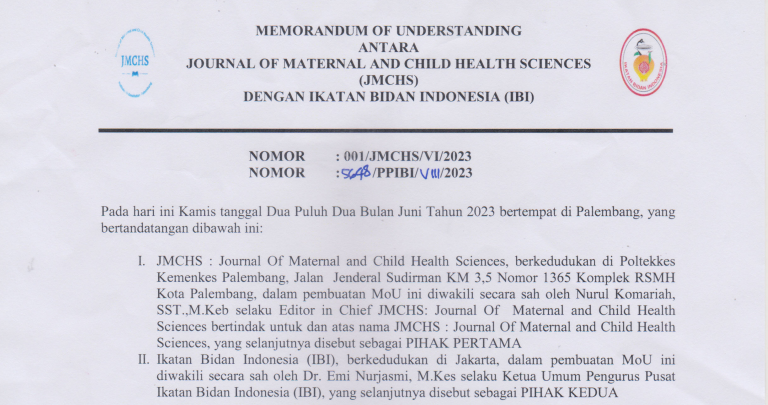Risk Factors Of Chronic Energy Lack In Pregnant Women
Abstract
Background
During pregnancy, the mother's body metabolism will increase to support fetal
growth and development, increase in uterine organs, and changes in body
composition and metabolism mother. Therefore, the need for energy and other
nutrients will also increase during pregnancy. If the nutritional status of the
mother is less supportive, pregnant women will experience nutritional problems
such as chronic energy deficiency (KEK) and nutritional anemia (Handayani &
Budianingrum, 2011).Objective: To determine the risk factors for the occurrence
of chronic energy deficiency in pregnant women in the work area of the
Palembang Superintendent Health Center in 2021. Methods: The design of this
study was case-control. This research was conducted at the Pembina Public
Health Center of Palembang City. The research sample was 60 first-trimester
pregnant women who were divided into 2 groups, namely the case group and the
control group. Results: Based on the results of the statistical test Chi-Square, it
was found that there was a significant relationship between parity with p = 0.001
(OR = 7.5, 95% CI: 2.244-25.062) and pregnancy interval with a value of p =
0.000 (OR = 16, 4, 95%CI: 4,569-59,073) with the risk of Chronic Energy
Deficiency in pregnant women. Conclusion: There is a relationship between
parity & pregnancy distance to the incidence of chronic energy-deficient
pregnant women at Pembina Puskesmas Palembang in 2021. Pregnant women
with risk parity (> 2 children) are 7.5 times at risk of experiencing chronic
energy deficiency and pregnant women with risky pregnancy intervals ( < 2
years) 16.4 times the risk of experiencing chronic energy deficiency.
Keywords: Risk of Chronic Energy Deficiency, Pregnant Women
Authors who publish with this journal agree to the following terms:
- Authors retain copyright and grant the journal right of first publication with the work simultaneously licensed under a Creative Commons Attribution License that allows others to share the work with an acknowledgement of the work's authorship and initial publication in this journal.
- Authors are able to enter into separate, additional contractual arrangements for the non-exclusive distribution of the journal's published version of the work (e.g., post it to an institutional repository or publish it in a book), with an acknowledgement of its initial publication in this journal.
- Authors are permitted and encouraged to post their work online (e.g., in institutional repositories or on their website) prior to and during the submission process, as it can lead to productive exchanges, as well as earlier and greater citation of published work












